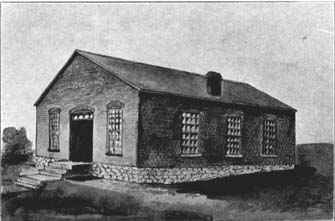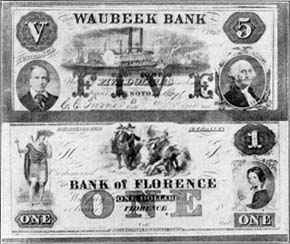|
96
|
SEMI-CENTENNIAL HISTORY OF
NEBRASKA
|
|
also recommended that the people of Nebraska
should assist in providing labor and honest opportunities
for the freed negroes of the south,--a suggestion which
raised a storm of clamorous remonstrance from some of the
democratic newspapers. The republican territorial
convention, held September 19, 1866, quietly dropped the
name "Union" and resumed its old title. The democratic
convention met two days later and adopted a platform
written by J. Sterling Morton whose most conspicuous
plank was one declaring that "negroes were not entitled
to vote or hold office in Nebraska."
The quarrel between
President Johnson and the republican congress at
Washington had now reached an acute stage and one that
acted powerfully on the political situation in Nebraska.
The democratic party had the republicans in the same box
which the democrats had occupied in 1860. The democrats
were united while the republicans were badly divided. It
is already remarked that for the first four years of her
organized existence Ne-

First Methodist Church Built in Nebraska at Nebraska City
in 1855
braska was wholly democratic. Many democrats had
joined the republican party in opposition to slavery and
to put down secession. Conservative men of this class now
began to balk at the radical program of republican
leaders in congress and supported President Johnson. As a
rule, the federal office holders and those who hoped to
be federal office holders, during Johnson's
administration, were on his side of the cotnroversy
(sic). So there was a division in the republican party of
Nebraska growing wider each day. The democrats rejoiced
in a new hope. Their newspapers and orators burned with
praises of the President. The Johnson republicans,
meanwhile, found that they could not control their own
party organization in Nebraska. This condition of affairs
brought about the first case of "fusion politics" in our
history. The democratic territorial convention and
Johnson republican territorial convention met on the same
day in the same building and arranged for a division of
the offices. The democrats got three candidates: Morton
for delegate to congress, Mur-
|





